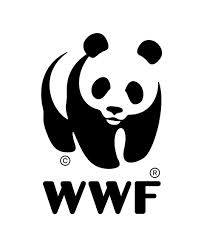Vietnam Must Tackle Rhino Horn Trade or Face Sanctions Under Wildlife Trade Treaty
WASHINGTON, September 15, 2016 /3BL Media/ – With the rhino poaching crisis showing no signs of abating, Vietnam must crack down on its rampant illegal rhino horn trade or face sanctions, World Wildlife Fund (WWF) said ahead of a critically important wildlife trade conference next week in South Africa.
As the world’s largest market for illegal rhino horn, Vietnam’s failure to shut down illegal markets, disrupt the trafficking networks and prosecute the traffickers will be in the spotlight as Johannesburg hosts the 17th Conference of the Parties (CoP17) to the Convention on International Trade in Endangered Species of Wild Fauna and Flora (CITES) from September 24–October 5.
This will be the largest CITES meeting ever with participation of 181 countries and a record number of items up for negotiation, including wildlife trade issues relating to elephants, sharks, pangolins and tigers. But given its location in South Africa, which has lost nearly 6000 rhinos to poachers since 2007, including more than 700 so far this year, rhino issues will be high on the agenda.
Despite widespread evidence of rhino horn openly for sale in Vietnam, authorities have made no significant rhino horn seizures within their borders and have reported no successful prosecutions.
“Vietnam’s poor law enforcement record speaks for itself: ending the illegal rhino horn trade and helping to save Africa’s rhinos is clearly not a priority for the government,” said Ginette Hemley, WWF Head of Delegation to CITES. “With around three rhinos being poached each day, there is no time to lose. CITES must take a tough line with Vietnam: swiftly implement critical measures to tackle the illegal rhino horn trade or face trade sanctions.”
Specifically, Vietnam must agree to enact new regulations to treat wildlife crime as a ‘serious crime’ with a minimum sentence of four years in prison; legislate to treat fake rhino horn as real rhino horn for enforcement and prosecution purposes; and successfully target and prosecute illegal traders and traffickers. Otherwise, CITES must call on countries to prohibit trade with Vietnam in all CITES-regulated wildlife.
The illegal ivory trade will also be a major agenda item at the conference. With tens of thousands of African elephants being poached each year and an international ivory trade ban already in place, CITES must focus on the measures needed to effectively implement the ban and deal with the fundamental issues behind the illegal ivory trade – corruption, inadequate laws and lack of enforcement in countries along the illegal ivory trade chain, and rampant demand in Asia.
In particular, it is critical that all 19 African and Asian countries most implicated in the illegal ivory trade rigorously implement their National Ivory Action Plans under CITES, which are beginning to yield results. Independent reviews of each country’s progress are needed and countries failing to act should also face the threat of CITES trade sanctions.
“We know wildlife trade restrictions work when supported by enforcement on the ground,” said Hemley. “If the world takes decisive action in Johannesburg, and countries hold one another accountable, rhinos, elephants, and other threatened wildlife can thrive for generations to come.”
Click here for more information on CITES

